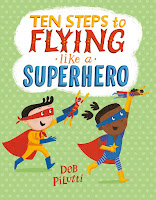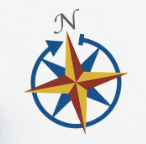Mitten blog co-editor, Charlie Barshaw is here to show our appreciation for a long-time SCBWI-MI member who's in the process of moving out of state. Read on for Charlie's interview with Jennifer (Jay) Whistler, and please join us in wishing her well. Stay in touch, Jay!
Jay Whistler on Thunderstones, Pantsing, Paris and Character Desire
When you were young, which books and authors helped to make you the voracious reader you are today?
The first book I bought through the Scholastic Book Fair with my own money was Island of the Blue Dolphins by Scott O’Dell.
I remember thinking that if a young girl like that could survive wild dogs and storms and injury, I could do anything. I fell in love with the idea that I could buy my own adventures based on what appealed to me, with no parent, teacher, or librarian telling me what was “required” reading. In fact, until well into college, if a book was required reading, I automatically eschewed it. But anything that I picked up because I wanted to? That to me was the ultimate expression of freedom.
Who or what inspired you to write?
When I was in third grade, we had to write an essay about something in geology that we were intrigued by. My mother had a subscription to Natural History magazine, which contained an article about thunderstones,
pieces of flint that were likely created during the stone age as arrowheads, ax blades, etc. For hundreds of years in Europe, farmers (or anyone who dug one up) thought they were bolts of lightning that had fallen to earth.
So I wrote my essay in the form of a news bulletin about a famous Scandinavian tunderstones (no ‘H’) found in a farmer’s field in the 1800s. I even wrote in a Scandinavian “accent.” While I cringe now at writing in dialect—oh, please do not ever do this!—third-grade me was thrilled when I was the only student to receive an A and for my teacher to ask me to read it aloud.
With an MFA and an MA in your pocket, what have you found to be the challenges and rewards of higher education?
The MA is in technical writing, which helped me learn how to write lean. I am always on the hunt for filler words in my own and clients’ manuscripts. It also helps me zero in on passages that tell. And after teaching essay and technical writing at the college level for years, I focus on grammar and mechanics like, well, a college professor.
The MFA gave me the skills I needed to take my writing to the next level. I needed to learn more about plot, character development, and how to revise. Even though I have the three letters after my name, I’m still learning. But now I know how to learn, where to go to find the resources that help me continue my education. I will always be learning how to write (and revise and edit) better.
The biggest challenge with higher education is not allowing myself to fall back into writing habits that I had for 20 years. We are often told to write what we know, but I think that we often mistake that to mean write “how” you know. If you’ve always written in a specific way or believed something an editor or agent or critique partner said you must do from now on, it can be difficult to change how you write.
For me, changing how I write also changed my output. I now write more words and produce cleaner drafts that don’t meander. I used to be a “pantser” (someone who writes by the seat of their pants), but now I am a dedicated “plotter” (someone who does a lot of character development and outlining before drafting). That’s been a game-changer, but it is still a challenge to stay focused and not bang out a draft just because I am excited about my shiny new idea.
You do freelance editing for everything from rhyming picture books to adult novels. What do you wish aspiring writers understood?
Never submit a first draft. Terry Pratchett said that the first draft is just you telling yourself the story. He was right. Get it on paper and let it simmer for a few days or weeks. Come back with fresh eyes. You will see so much that needs to be re-visioned. Submitting that first draft to a potential agent, editor, or contest can end your chances with them. Many agents and editors will say, “Thanks, but no thanks,” which is code for, “Never contact us again.” You don’t want to close that door if you can avoid it.
By the same token, don’t be too eager to send a draft to a freelance editor. I’ve had lots of what I suspect are first drafts that need complete overhauls because the timeline is off, there is no clear concrete goal for the protagonist, plot holes abound, and more. This is a waste of your money. Be patient. Revise thoroughly. Send an agent, editor, or freelance editor the very best version of your writing.
As an acquisitions reader for a literary agency, what mistakes automatically trigger a “hard pass”?
One of the biggest for me is when I see a manuscript that has not been proofread or grammar checked. I am always willing to overlook a few typos here and there, but if I am seeing them on every page, or if there is a consistent pattern of sentence-structure errors, this makes me think I am looking at a first draft. Take the time to run the manuscript through good grammar software. There are several free programs available. My current favorite is Grammarly, which has free and paid versions.
I also need to see a story that has a concrete desire line for the protagonist and includes meaty stakes if the MC doesn’t achieve that desire. It’s not enough for the MC to want something. They must risk losing something else if they don’t get it. If I am reading a submission that shows promise because the writing is beautiful or the story is intriguing, I might suggest a “revise and resubmit” offer, which essentially lets the author know that the agent is willing to look at it again if substantive changes are made.
As Regional Advisor for SCBWI in Switzerland, what are your favorite memories? What challenges did you face as the head of a writing community in Europe?
When I took over the Swiss chapter, we had nine members in the entire country and no money. I mean not one franc. My main goal was to build our membership and create opportunities for members to get together, form critique groups, and network.
I did a few webinars to build our treasury, held in-person gatherings across the country, often traveling from the French region to the German region to host events, and I was fortunate enough to be one of several European RAs who organized the first-ever Europolitan SCBWI conference, which was held in Paris in 2013. This is now a biennial conference every odd year.
When I turned the chapter over to my successor, after only 18 months, we had tripled our membership and built a tidy nest egg. The Swiss chapter now has over 50 members and continues to grow.
You’ve done numerous Shop Talk presentations, and just recently spoke on “Character Desire.” You’ve helped to co-chair writer conferences. Why are you so generous with your time and talent?
I would not be where I am today without SCBWI.
I had never heard of the organization until 2004 when
Monica Harris invited me to attend a conference. Her critique group also welcomed me with open arms. Every conference, every critique group meeting, every retreat all served to improve my craft. Our chapter is incredibly generous and so many members are willing to donate their time and expertise to help newbies and “oldbies” alike. So I am paying back this chapter that helped me reach major milestones, but also paying it forward by helping nurture up-and-coming writers and illustrators.
The Whistlers are moving to warmer climes. Rumor has it you don’t care for Michigan winters. What are your plans for the future?
Rumor is not wrong. Kalamazoo has the distinct disadvantage of gloomy winters with only three days of sun per month, on average, between November and April. (Look it up if you don’t believe me.) That’s six months with only 18 days of sun. By the time Groundhog Day comes along, I’m ready to hurt people. This move to Texas, while ostensibly to be closer to our daughters, is really for the safety of all Michigan residents. You’re welcome.
As for future plans, I continue to do my freelance editing and agency reading. And I may decide to start breeding long-horn Texas steers and do some bronco busting. But first I have to git me some cowboy boots and a lot of plaid.
Which of your own Works in Progress are you most excited about?
I’m working on a middle-grade historical fiction novel. And that’s all I’m going to say.
Follow Jay here:
Website: www.jaywhistler.com
Twitter: @JayWhistler



































